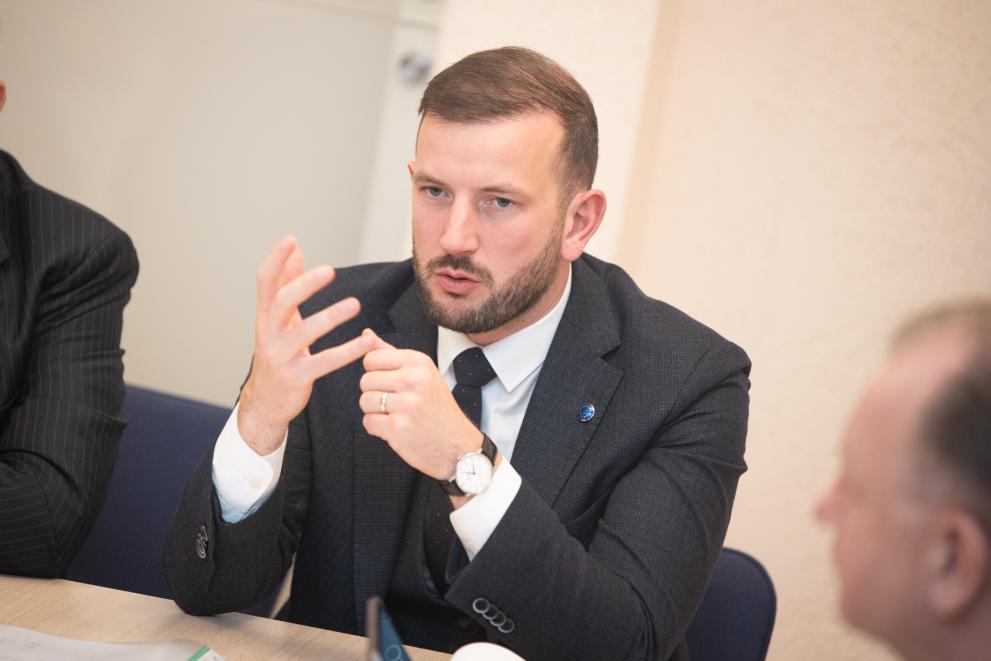
This week the world gathered in Nairobi at UNEA 6 to address a set of existential problems. While the global geopolitical crises demand leaders’ attention, we will look for shared solutions to a different set of global crises – climate change, pollution and the destruction of nature. Threats that are common to us all.
This planetary emergency grows more pressing with every passing day. Biodiversity loss is weakening our economies and undermining the well-being of billions of people. Pollution is now taking nine million lives every year. And for entire nations, rising sea levels, droughts and floods are becoming an existential risk. In its Global Risk Report 2024, the World Economic Forum singled out extreme weather as the topmost risk for the coming year, far ahead of armed conflict and economic downturns.
A major global report by UNEP’s International Resource Panel released this week shows that the unsustainable ways of extracting, processing and using material resources for our global economy are the single biggest driver of the planetary crisis.
Our actions in the next years will determine our future. That’s what makes the decisions we take this week – and the actions that need to urgently follow – so important.
We need a radical change in our relationship with the planet. What we need is a more systematic effort to address the three pillars of sustainable development at the same time – the economic, the social and the environmental. No country should have to choose between fighting poverty and fighting for the planet.
The European approach to this issue is set out in a plan we call the European Green Deal. It’s a visionary but also a very concrete plan to achieve climate neutrality by 2050, become nature-positive, reduce pollution to levels that are no longer harmful to human health or the environment, and create new opportunities with an economy that reuses resources and allows us all to live within the boundaries of our planet. It is a master plan that we do not intend to impose on others but that we want to use to engage. And we are already doing it – with our partners, you, with a view to an ecological transition to be built together on the basis of higher environmental standards and offering better livelihoods to populations. It represents an opportunity for dialogue, enhanced international cooperation and EU support for the transition especially of the most vulnerable countries that we do not want to leave behind.
One big pillar of this transition is moving towards a circular economy where the value of products, materials and resources is maintained in the economy for as long as possible, and the generation of waste minimised. If we implement this circularity in the correct way, it will lift people out of poverty. It can help address hunger, shorten supply chains, strengthen connections inside communities, while also creating green jobs. With advanced technologies, for example, we can convert biomass into circular products that are safe and sustainable. That helps us address the global water crisis, while also unlocking the potential of innovation to generate co-benefits for biodiversity and food systems.
In 2024, some 2.2 billion people still lack access to safe drinking water and 3.5 billion lack safely managed sanitation. Almost half of the world’s population is expected to suffer acute water stress by 2030. And while Europe is still relatively fortunate when it comes to water, we too now suffer from droughts and floods that are more frequent and more intensive due to the climate crisis and the nature degradation.
There is no longer any doubt that the planet’s water systems are out of balance, and the potential consequences for food, energy, security, health and economic prosperity are extreme. There are no magic solutions, but one thing is clear – successful action will revolve around cooperation. No single country, no single region can tackle the global water crisis alone. That is why the EU has proposed to its partners to work together for increased water resilience. The idea is to increase access to drinking water while looking at water efficiency. This makes the transition to a circular economy an essential element of good water policies.
We need to leverage additional resources to close the financing gap. The EU is stepping up its support to developing countries to assist them on the way to a green and inclusive transition. With the Global Gateway we support sustainable and trusted connections that work for people and the planet.
Finally, when we talk about water, we also think of the nature on which our lives depend. But nature is in crisis. The World Economic Forum estimates that over half of the world’s GDP – some EUR 40 trillion – is linked to nature, and addressing the nature crisis could generate 395 million jobs by 2030. In Montréal, world leaders agreed to put nature at the heart of our economies. That can only happen with high levels of engagement and commitment from politicians, businesses, and financial institutions, and that’s what I hope UNEA 6 will deliver.
The solutions to the triple planetary crisis will never be easy. Challenges are interconnected, and so are solutions. With more action to advance to circular economies, we also reduce pollution and contribute to the fight against climate change. By investing in nature, we benefit local populations, favour the economy, as well as the climate. All these efforts will benefit water – this essential common good for the entire world.
And finally, let’s not forget, big changes often start small. Whether it’s planting trees, attracting pollinators, talking to students and young people, or restoring polluted habitats, we can all lead by example. This is how concrete changes start. From all of us.
Details
- Publication date
- 1 March 2024
- Author
- Directorate-General for Environment

